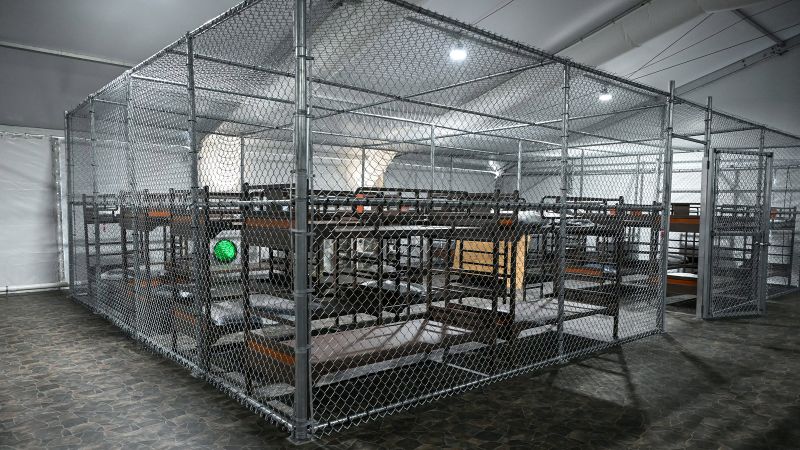
Rep. Angie Nixon, a Democrat from Florida, recently visited the newly established migrant detention center, informally known as “Alligator Alcatraz.” Following her tour, which was not open to media coverage, she shared alarming observations about the facility’s conditions during an interview with CNN’s Victor Blackwell.
Nixon described the experience as “very upsetting,” highlighting her concern for the treatment of migrants housed within the center. According to her account, detainees are provided with water from toilets, raising serious questions about sanitation and human rights within the facility.
Details from the Tour
During her visit, Nixon witnessed first-hand the stark environment of the detention center. Constructed to accommodate an influx of migrants, the facility has garnered significant attention due to its controversial practices. The congresswoman emphasized the need for immediate reforms to ensure that the dignity and health of those detained are prioritized.
Nixon’s statements reflect a growing concern among lawmakers and human rights advocates regarding the treatment of migrants across the United States. She indicated that the conditions at Alligator Alcatraz do not align with American values, particularly in regard to the treatment of vulnerable populations.
Broader Implications
The revelations from Nixon’s visit come as the U.S. grapples with ongoing debates about immigration policy and the treatment of migrants. Critics of the current system argue that facilities like Alligator Alcatraz demonstrate a failure to uphold humane standards.
Reports suggest that these conditions could have lasting effects on the physical and mental health of detainees. Advocates are calling for increased oversight and transparency in the management of migrant detention facilities nationwide.
As the situation evolves, Nixon’s insights may help to fuel further discussions about reforming immigration practices in Florida and beyond. Her commitment to addressing these issues underscores the urgent need for systemic change in how the country handles migration and the treatment of those seeking refuge.







